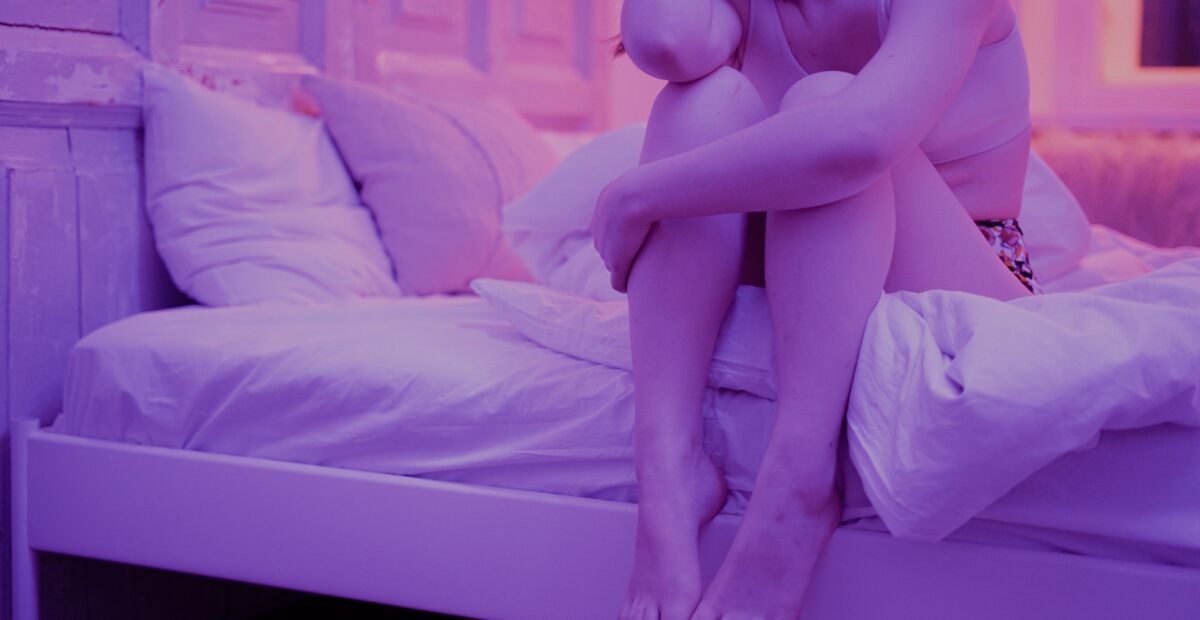Autism and Sleep: Tips for Sleeping Better

Featured Image by cottonbro studio, Pexels
Always tired? You’re not alone. Autism can make sleep much harder than it needs to be.
Sleep trouble is a woefully understudied aspect of autism, but a 2019 study suggested that 80% of autistic children have disrupted sleep – twice as common as both neurotypical children and children with other conditions. Research from Jichi Medical University in Shimotsuke, Japan has also suggested that autistic people are twice as likely to carry alterations in genes that regulate circadian rhythms, for reasons as yet unknown.
And the worst part? Lack of sleep can exacerbate features of autism, from social stress and hyperactivity to repetitive behaviours. Reading social cues and managing a lifelong condition is stressful enough for those on the spectrum; adding exhaustion to the mix can make you feel overwhelmed constantly.
To learn more about autism, and even test yourself for the condition, visit our explanation of autism and autism spectrum test. But if you want to learn how to finally get a good night’s sleep, keep reading for our 4 top tips.
How Does Autism Affect Sleep?
Sleep conditions affecting autistic people include:
- Insomnia, or trouble falling asleep – this can be caused by difficulties relaxing and/or irregular secretions of melatonin (which regulates sleep levels).
- Hypersomnia, or sleeping too much – this can result from increased social exhaustion.
- Sleep apnea, or stopping breathing a few seconds at a time while asleep; these episodes stress the body and lead to less restful sleep.
Conditions like these are part of the reason autistic people sleep an average half-hour less and take 11 minutes longer to fall asleep than non-autistic people.
On top of this, autistic people tend to get less REM sleep – an average 15% of sleep time compared to non-autistic people’s 23%. REM is critical for processing learning, solidifying memories, and waking up feeling rested.

Image by Pixabay, Pexels
What Can You Do to Sleep Better if you have Autism?
Start a Sleep Diary.
Sleep diaries are the go-to for anyone tossing and turning. With a diary, you can track:
- How long it takes you to sleep.
- How often you wake up.
- How long you sleep for.
- How rested you feel in the morning.
This lets you become aware of your sleep patterns and spot changes. It also allows you to show GPs and sleep health professionals clear data they can use to better help you.
It’s also wise to keep track of other daily factors that influence your sleep, such as diet, caffeine/alcohol intake, exercise habits, and feelings of stress during the day.
Keep to a Bedtime Routine.
A simple, predictable routine can signal to your body that it’s time to relax. The routine should be at least half an hour long, easy enough to do every night and, above all, enjoyable.
You should experiment and see what works best for you, but some common activities are:
- Taking a soothing bath.
- Reading a book.
- Drinking herbal teas.
- Listening to calming music.
- Gently exercising.
- Meditation/breathing exercises.
It’s also important to avoid some common activities that can damage sleep, such as drinking caffeine or alcohol and using electronic devices, the blue-light from which can suppress melatonin production (research suggests autistic people may be more sensitive to this last one).
Make Your Bedroom More Comfortable.
A bedroom should be dark, quiet, and cool to best facilitate sleep. But even if you’ve checked those boxes, the sensory processing differences that autism causes may make some elements of your room especially disruptive.
If noise is especially grating for you, try shutting all doors/windows, moving your bed away from a busy wall, or using noise-cancelling headphones. If you’re sensitive to smells, scented candles/incense can be a big help. You can consider changing your wallpaper/paint if bright colours are an issue.
There are also sleep products that might be worth investing in, such as weighted blankets, blackout blinds, or more comfortable pyjamas and bed sheets. Again, you know yourself best; try focusing on how you feel in your bed for a few nights and then write up a list of possible changes.

Image by Thirdman, Pexels
Use Relaxation Techniques.
Some simple relaxation techniques can help you soothe your body before bed. Breathing exercises are particularly effective ways to soothe the sympathetic nervous system (SNS), the nerve network that registers danger and increases anxiety.
Some tried and tested breathing exercises include:
- Alternate Nasal Breathing – use your thumb to close your right nostril, then inhale through your left; now close the left and exhale through the right; repeat for 5 minutes [pictured above].
- 4-7-8 Breathing – inhale for 4 seconds, hold for 7, exhale for 8, and repeat.
- Diaphragmatic Breathing – lie down and place one hand at the top of your stomach and another on your chest; breathe through the nose so that the hand on your stomach is raised, while the hand on your chest stays as still as possible; exhale through pursed lips; repeat until this feels natural.
You might also find visualization exercises helpful; body scan meditation, for example, works by focusing awareness on bodily sensations and picturing tension leaving each part of your body progressively, from your feet and legs to your shoulders and head.




